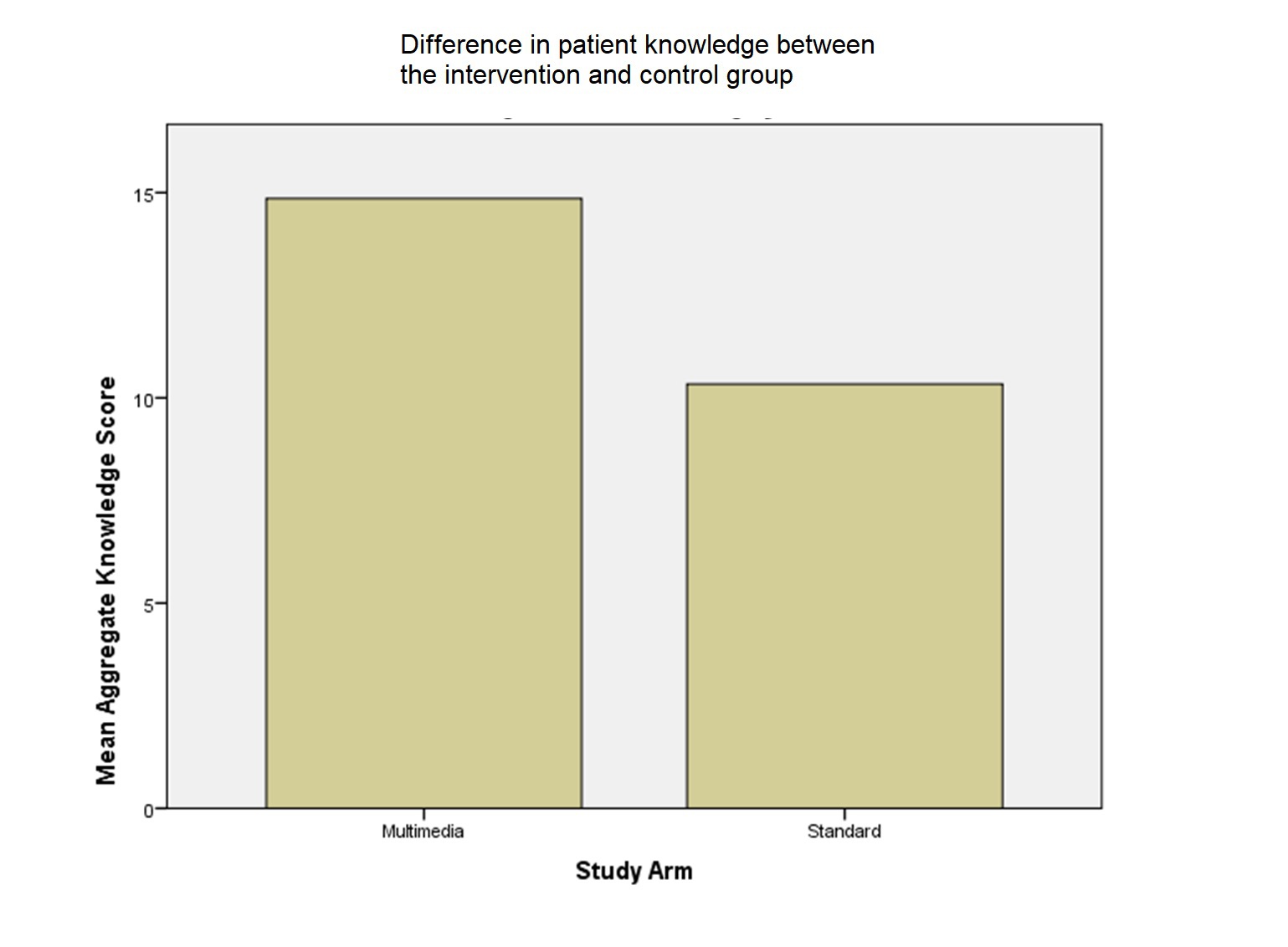|
Back to 2018 Posters
PATIENT KNOWLEDGE IMPROVES BY USING A MULTIMEDIA SYSTEM FOR INFORMED COSNENT FOR INPATEINT SURGICAL PROCEDURES: A RANDOMIZED CONTROLED TRIAL
Mir Fahad Faisal*1, Jamie Varghese1, Irum Shakeel2, David Shanberg1, Todd Moore2, Sreenivasa S. Jonnalagadda2, John H. Helzberg2
1University of Missouri Kansas City, Mission, KS; 2Saint Luke's Hospital of Kansas City, Kansas City, MO
Background
Informed consent is considered an ethical responsibility before medical and surgical procedures. The aim of informed consent is to provide explanations, answer questions, and ensure patients make informed decisions. Surgery has patient risks and provider risk for litigation. In a study evaluating responses from 79 attorneys specializing in clinical negligence, 86% felt that patients should be told about procedures on at least two occasions and favored booklets and videos.
Methods:
Patients undergoing inpatient cholecystectomy, appendectomy, hernia repair or colectomy were randomized to either standard paper based informed consent (PBIC group) which consisted of a physician patient discussion or to multimedia educational modules for informed consent (MIC), in addition to the paper based consent. The multimedia modules consisted of web based educational material specific to the procedure and could be completed in 30 minutes. Surveys for anxiety, patient satisfaction, and patient knowledge (13 multiple choice questions specific to procedures) were obtained by a research coordinator before the procedure and on day 7 after the procedure via telephone.
Results:
23 patients were enrolled with 9 patients in the PIC arm and 14 patients in the MIC arm. 43% patients were males and 56% females. 83% were white, and 9% were African American. Mean age was 50 years. 57% underwent cholecystectomy, 22% underwent hernia repair, 13% underwent appendectomy and 8% colectomy.
Mean knowledge score of patients in the MIC arm was 14.86 compared to 10.44 in the PIC arm (p=0.0026). However the difference in patient knowledge score was not significantly different between the MIC group and the PIC group by follow up phone calls on day 7 after the procedure. There was no difference in patient satisfaction between the two groups. There was also no significant difference in anxiety (p=0.1). Patients in both groups reported no difference in preparedness for the procedure, satisfaction with explanation and care provided or comfort before the procedure p = > 0.05. There was no difference in patient knowledge, patient satisfaction, or patient anxiety based on sex, race, socio-economic status, or sex.
20% of patients reported signing the informed consent document without reading it completely, and there was no significant difference between the two study groups (p=0.143).
Conclusion
Multimedia based education improves patient knowledge about the procedure significantly and enhances the process of informed consent. Interestingly however, the difference was not sustained one week after the procedure. There was no difference between patient satisfaction or anxiety between the two groups.

Back to 2018 Posters
|

